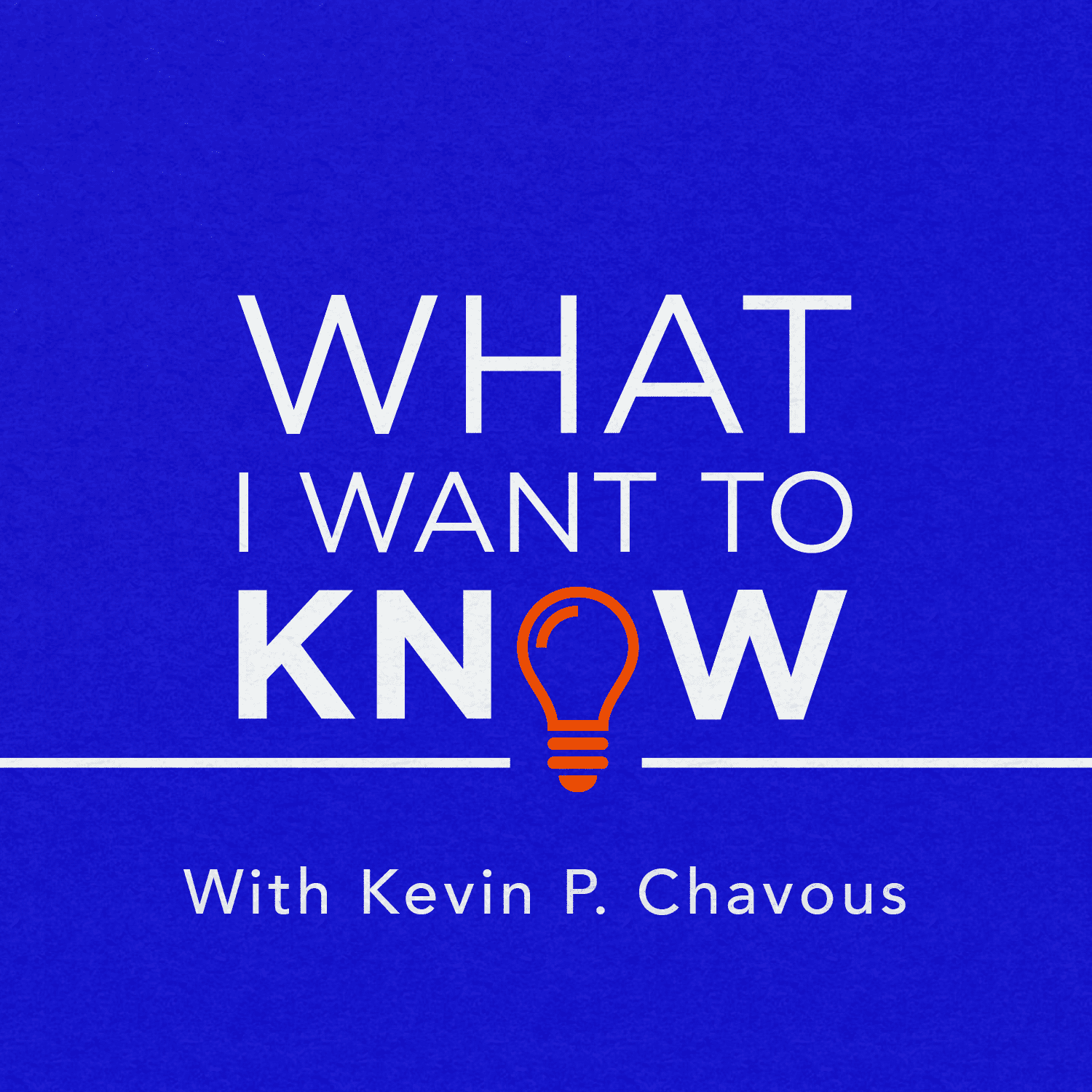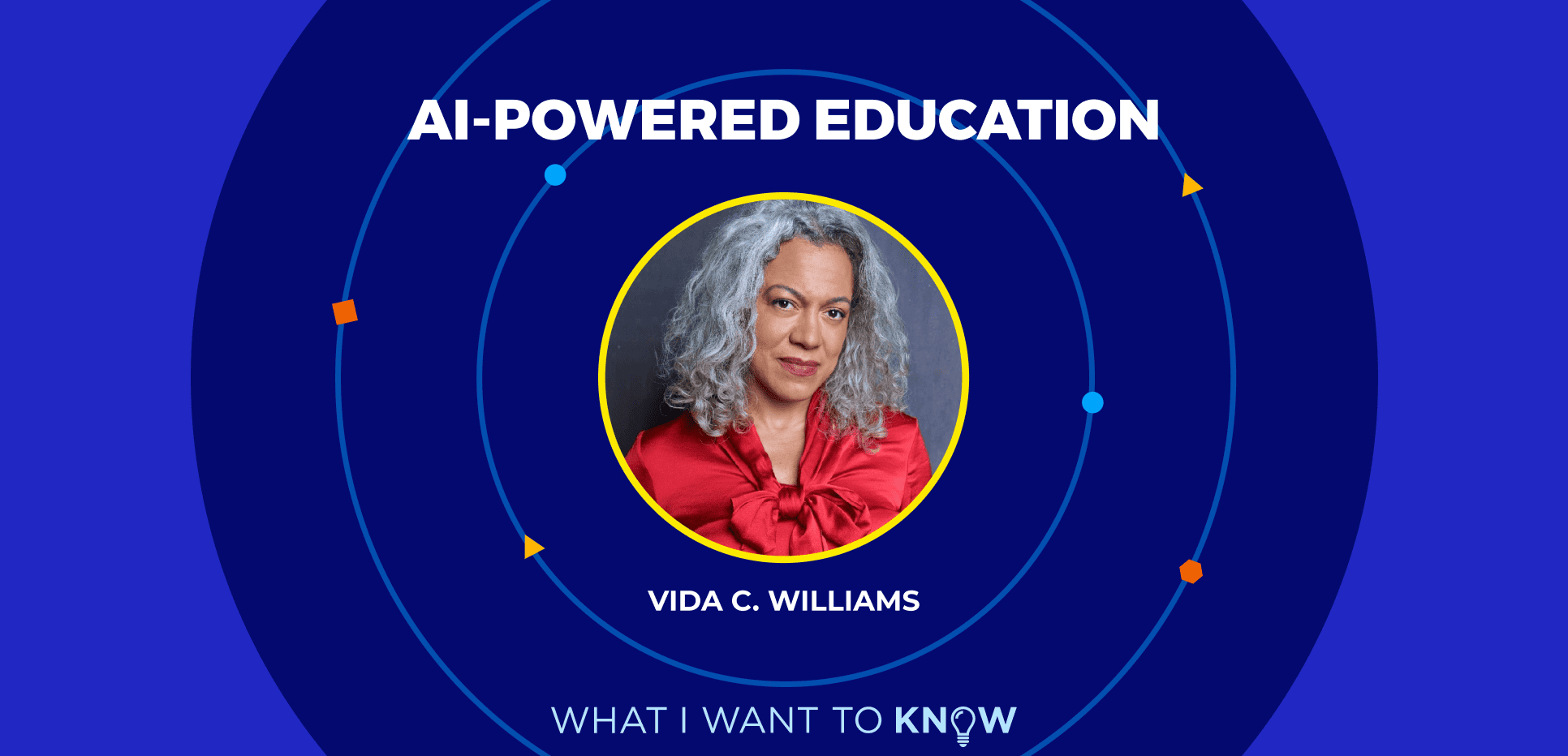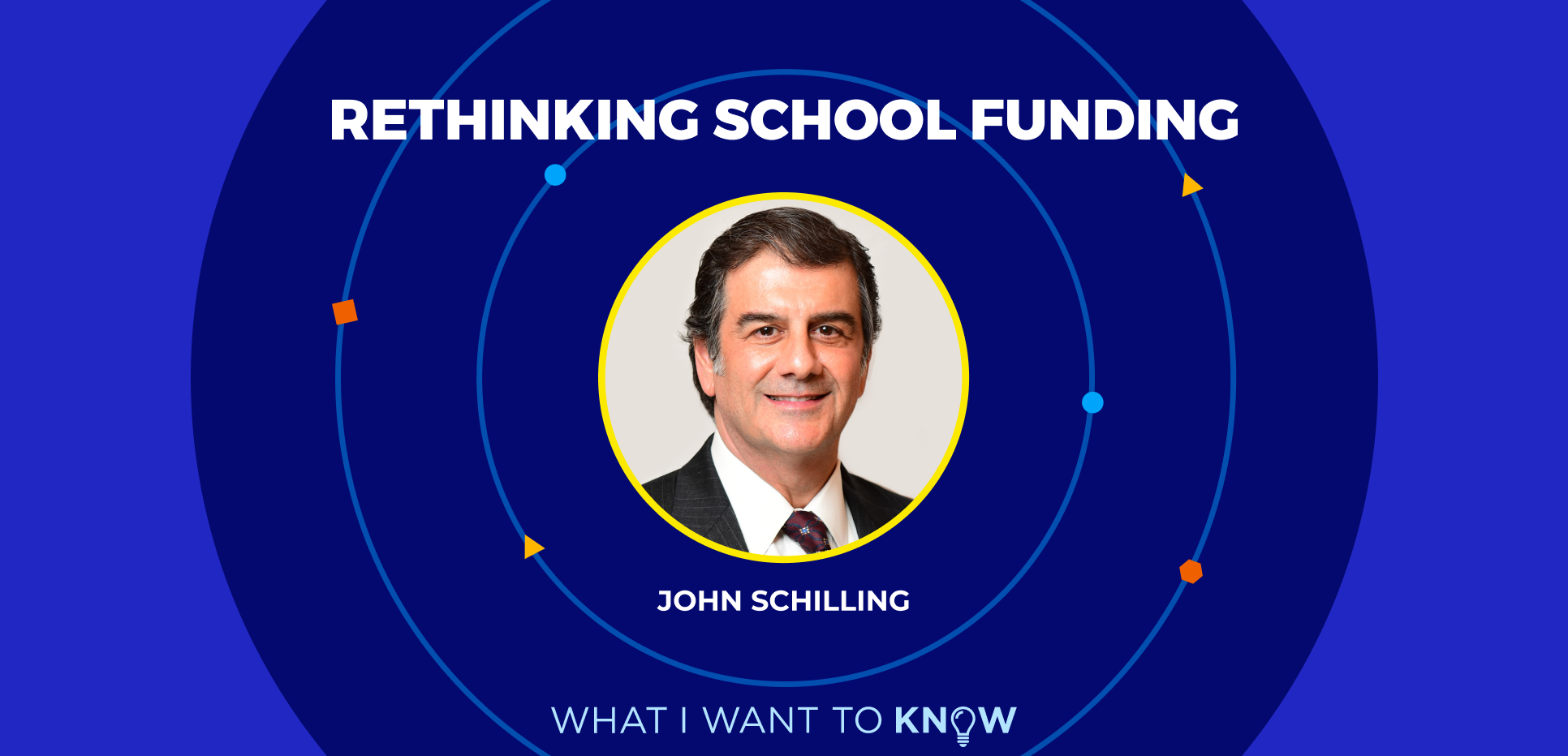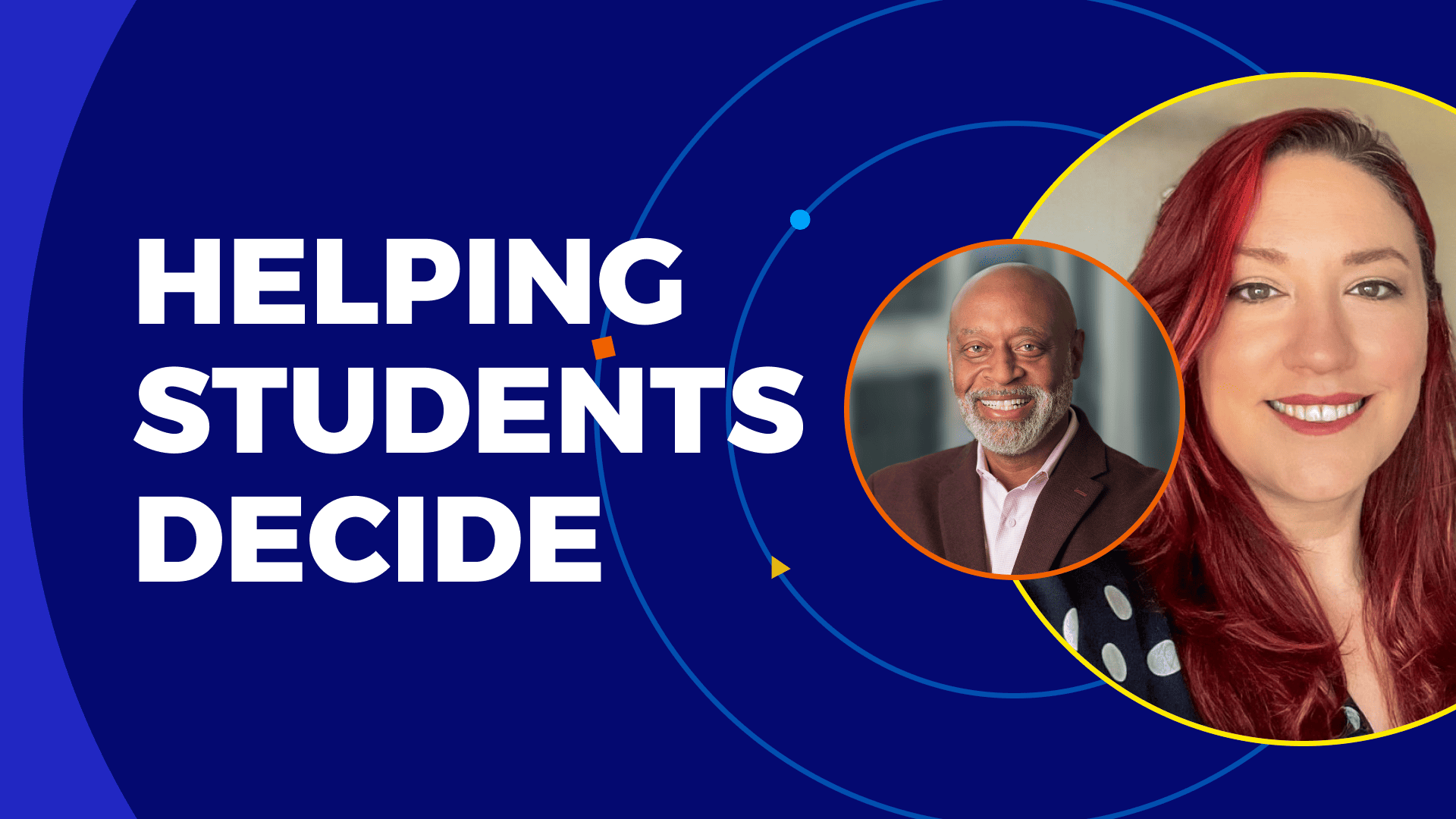The pandemic provided parents with a front row seat to their children’s education, and many did not like what they saw. But how can parents drive real change in systems that are resistant to reform? What can they do to expand the opportunities available to their kids today and in the future? And how can they change their approach to activism to ensure that their voices are heard?
In this episode, Kevin speaks with Colleen Dippel, founder and CEO of Families Empowered, to discuss parent power in education.
Listen to the Full Audio
Listen on: Apple Podcast, Spotify
Transcript
Kevin: The pandemic provided parents with a front-row seat to their children’s education, and many did not like what they saw. But how can parents drive real change in systems that are resistant to reform? What can they do to expand the opportunities available to their kids today and in the future? And how can they change their approach to activism to make their voices heard like never before? This is “What I Want to Know”.
Kevin: Today, I’m joined by Colleen Dippel to explore these questions and so much more. Colleen Dippel is the Founder and CEO of Families Empowered, an organization that helps parents make smart educational choices throughout the state of Texas. She is a Teach for America veteran who began her career at the Houston Independent School District and KIPP Academy. Colleen also work at Project ACHIEVE, an education technology startup. Colleen, welcome to the show.
Colleen: Well, thanks so much for having me on, and for elevating parent voices and caring about parent voices.
Kevin: You know, you’re very highly educated, but at some point in time, you develop this passion around education. You ended up Teach for America, the KIPP schools, how did that happen? Did you always know you wanted to be in education?
Colleen: No. I actually am a first-generation college graduate. And so, I really understood how important education was because it opened up doors for me that quite frankly other people in my family just didn’t have access to. And it really felt to me… it was a deeply personal thing that every child have opportunities to choose their own pathway and that every child be prepared for whatever it is they choose. So, Teach for America came along and I thought, “Well, this is a really compelling mission to me.” And so, I joined Teach for America, and I moved to Houston from New York, and have been here a very long time. And I was a public school teacher in the Houston Independent School District, and then worked at KIPP. So yeah, it became a passion, and I think I’m pretty lucky to have found something that I care so deeply about and to be able to spend my life in education.
Kevin: At some point in time, after doing, you know, teaching and working in schools, your path went in a different direction from a lot of, I will say, Teach for America types, Ed reform folks, my good friend, your husband, Mike, he helped start a school, started the KIPP schools, other folks did that, but you gravitated toward parents. What drew you to that work when it’s different from a lot of people, a lot of your peers?
Colleen: It’s really simple for me, I became a parent. Well, now had the privilege of working 11 years with diverse parents from across the state of Texas. I’ve never met a parent, and we have over 100,000 in our network. I’ve never met one who didn’t love their child. And so, as a parent myself, I thought, “Wow, so I’m struggling to find a school that’s a really good fit for my child. Where do parents go if they don’t speak English, if they’re unfamiliar with the options available to them, if they are newcomers, or if they themselves had a really unpleasant experience in the education system and may not feel confident asking for help?”
Kevin: Yeah.
Colleen: So yeah. I mean, it’s not really a rocket science answer, it’s a deeply personal answer.
Kevin: I have found and I’ve visited hundreds of schools around the country in the world, as you know, in fact, our paths have crossed many times. And I’m often struck by the fact an aspiring, innovative, thinking superintendent or school leader will reach out to me and they want to… and Howard Fuller, not shocked, but they wanna bounce off of us or me, or, you know, their ideas and they always talk about their priorities and talk about curriculum, and instruction, and teaching and all that. And then, some may not even mention parents, but those who do usually put at the end, and then I’m gonna have a parent outreach coordinator or something. And this sort of afterthought about the role of parents, I think that’s fed into the fact that parents don’t have the same importance. Have you seen that?
Colleen: So I actually, am really glad you brought Howard up. So when I was thinking about starting Families Empowered, I thought about it as an advocacy organization. And I remember sitting down with Howard and sharing this business plan and going to lots of different people and saying, “Oh, I have this great idea, we’re gonna change this system.” And Howard and I had dinner, and he looked at me and he said, “It’s great that you want to change the system. It’s great that you wanna start an advocacy organization, but have you asked parents what they want?” And it was the most important question that anyone asked me in the process. It was the most humbling and it was the right one. And so, what’s interesting was that we then made the decision to ask parents.
In that first year, we had about 6;000 parents opt into our services, and it turned out that parents, you know, they want the system to change, but they really wanted was a school. And they really wanted to find a school that worked for their kids, and there was nowhere to go. And we literally did not a 360 but a 180 and said, “You know what? We’re gonna put a pause on advocacy, there’s lots of good smart people doing that. We’re gonna provide service to people who want to find good schools and don’t know how to find the options that will work for them.” And that gets at that question that you just asked, which is really asking parents and starting with parents as consumers, and the recipients was something that Howard actually pushed me to do. And it’s been part of our core values at Families Empowered for 11 years, right? Is to view parents as customers who know the most about their kids and have the most at stake.
Kevin: Now, let me ask you this, what are the common sort of challenges that you hear from parents when they reach out?
Colleen: So, I mean, at the top of the list, again, lots of well-meaning great people have overcomplicated the process of applying to schools, or creating opportunities for parents to have access to funds. And so, it’s great. And especially in the context of COVID, we’ve wanted parents to have more access to resources. And then we create these incredibly difficult application processes. I mean, it is like getting a mortgage sometimes to apply to school. So I think there’s technocratic solutions that are complicated and confusing. The other thing is, you know, parents often wanna talk to someone at a school and they’re just, you know, not hearing back from the school. So they wanna know that the school is gonna be responsive to them, and that’s, I think, a surprising one. I think a lot of people think they want parents wanna know the A3F scores or the SAT cat scores. I mean, that is important. Parents care about quality. They want schools that will listen to them, communicate with them, keep their children safe, but also provide a community for their kids.
So we just say to people all the time, like responsiveness, responsiveness, responsiveness is important because parents are handing over their most important resource and precious resource to the school. And then quality does matter, right? I mean, parents really want a school that’s gonna teach their kids to read, write and do math. We just did a survey, a Pre-K survey. We had over 700 respondents from Texas, be ready for this, over 2,000 nationwide. It’s a crazy sample size. The thing that mattered the most was social connection. So it turns out parents want their Pre-K students in a school where they can play with other kids in a joyful, safe environment. They’re not really interested in STEM for Pre-K. Do you know, I mean, it’s not that they don’t, but they’re willing…
Kevin: I mean, I hate to laugh, but it’s so commonsensical.
Colleen: Yes. Yes. And I think, oh, okay, when mine were little, what did I want? I wanted them to play in a safe environment, you know, that communicated with me in a way that was appropriate with other children, and have school-ready skills. And actually, parents are very on the ball. And if someone said to me, “We have a program that will guarantee your child will be an astrophysicist.” Like, I would know that that was kind of crazy.
Kevin: So how can we de-systematize things? If you were talking to, and you have already in Texas, I know your work, also know that you can put some fire behind those questions when you talk to some of those school leaders. Which is a good thing. If you’re talking to an administrator, what kinds of things would you suggest they do to make it easier for parents to apply to their school, or at least have contact with someone who may be a caretaker or a teacher for their child?
Colleen: Principal. Hire somebody at the front desk who answers the phone, who understands the community you’re working in, and who is responsive, who calls people back, who is patient and caring. And, you know, in our case, all of our callers are bilingual, right? Because we’re in Texas and it’s really important that we are able to speak in Spanish and English. So know your context, that’s actually important. From the technocratic, meaning like your process to apply, make it simple, don’t overcomplicate it, just really make it simple, right? And even at the high school level, there are lots of different kinds of schools that have different technical needs. And so, don’t make that complicated on the front end. So if you have an audition or scores, put that on the back end and make that a very, very easy process, but out in the community. And this is hard because schools have historically shut their doors and said “We do school, you’re…” You know, the expectation is that you’re gonna communicate with me regularly and that we’re gonna see you, the school is gonna be visible.
Kevin: Talk to me about Texas. I mean, you’re from the east coast and Texas is a different kind of state. And there are different challenges there. You know, you’ve got the border wall issue, you’ve got extreme poverty, you’ve got parents who are on edge because of their circumstances, talk about some of the unique aspects of running a parent organization in Texas that a lot of people may not be aware of.
Colleen: So what’s really interesting is it’s unique because the scale, right? It’s just so big. It takes two days to get across our state. In one day, you can go through, you know, four states on the east coast. And we have two time zones. And we have really unique diverse communities in Texas that are diverse in every way, right? We have border communities. Houston has the largest refugee population in the United States. I don’t know if you knew that.
Kevin: Yes. Yes.
Colleen: We are the most diverse city. So lots of newcomers. And San Antonio has a really, like some really deep historic communities that are really of incredible culture, right? Austin’s kind of a newcomer city with lots of strange, dynamic, you know, diverse, dynamic changes. And then we’re also serving families now in Tarrant County, which is in Fort Worth. People come to this state for something different, whether they’re coming from Nigeria or El Salvador, you know, or Ethiopia, they are coming here for the American dream. And so, they prioritize education. What that means is we have incredible demand for school choice among parents. We’ve just incredible demand for schools. Kevin, we’ve served over 110,000 families in 11 years.
Kevin: Wow.
Colleen: I mean, we reach hundreds of thousands of families now via social media. We have people coming to us every day looking for schools that are diverse in every way. So, I think the biggest asset we have are incredibly motivated families who want their kids to be educated and prepared for the workforce.
Kevin: Yeah.
Colleen: That’s incredible to have that kind of demand for options. The challenge we face, as you know, and many people might not because we are a red state, we don’t have a lot of choice.
Kevin: Yeah.
Colleen: It’s a problem. We have incredible parent demand, and then we have a very low response rate by our state, right? So we’ve got some incredible charter schools, as you know, some of the best charter schools in the country were started here. Prep, KIPP, Harmony, IDEA public schools, we have ResponsiveED, it’s one of the largest networks in the country. So incredible charters, and then lots of smaller charters that are kind of mom-and-pop charters.
Kevin: Mom-and-pop shops, yeah.
Colleen: But we don’t have a private school choice program.
Kevin: So I was gonna ask you about that vis-a-vis the pandemic, because we talked about parents having their nose under the camel’s tent, if you will, and they can see what’s going on. Do you think that will generate more opportunities for expanded options for parents in Texas?
Colleen: Here’s the thing, I think it should, right? It’s insane. So we lost like everyone else, we lost 250,000 kids. It remains to be seen if they’re lost, some are, right? Some of those kids were high school kids and I suspect they may never come back. Some of them were, you know, like Pre-K kids who maybe just the parents opted out. We lost middle school kids, we lost children. I think lots of those kids are homeschooling. And I think they’re gonna continue to homeschool, and that’s great. But I just can’t reasonably see how our legislators, our community leaders can continue to deny options to parents because parents are just gonna opt out. That’s just an untenable solution. I’m a big fan of homeschooling. I think it’s great for folks who are able to do that. But, you know, I mean, we have a tax-funded system. We’re all paying taxes. Every parent deserves the benefit of the taxes they pay. And there are so many kids right now who have parents who want them in a smaller private school, or a religious school, or a school for kids with special needs. And those parents deserve to have their tax dollars work for them. So I can’t imagine a universe where the status quo stays the same. Now, it’s Texas, so we have weird politics here, right?
Kevin: Yeah. Yeah.
Colleen: You know, it’s the only red state I think in the pandemic that didn’t really move the ball forward in terms of school choice.
Kevin: All right, Colleen, this is what I really wanna know. What does parent power and education really mean to you?
Colleen: Parent power and education means that every parent has the ability to choose a school that is a right fit for their family.
Kevin: Well said. Colleen Dippel, thanks so much. Always great to see you.
Colleen: It’s so good to see you, especially after this year. And thank you so much for caring about parents and inviting me on today.
Kevin: All right. Take care.
Colleen: Thanks.
Kevin: Thanks for joining “What I Want to Know.” Be sure to follow and subscribe to the show on Apple Podcasts, Spotify, or your favorite podcast app. And don’t forget to write a review too. Explore other episodes and dive into our discussions on the future of education. I also encourage you to join the conversation and let me know what you want to know using #WIWTK on social media. That’s #WIWTK on social media. For more information on Stride, visit stridelearning.com. I’m your host, Kevin P. Chavous. Thank you for joining “What I Want to Know.”
Meet Colleen
Colleen Dippel is the founder and CEO of Families Empowered, an organization that helps parents make smart, educational choices throughout the state of Texas. She is a Teach For America veteran who began her career as a public school teacher in Houston. Colleen also worked at Project Achieve, an education technology startup.







